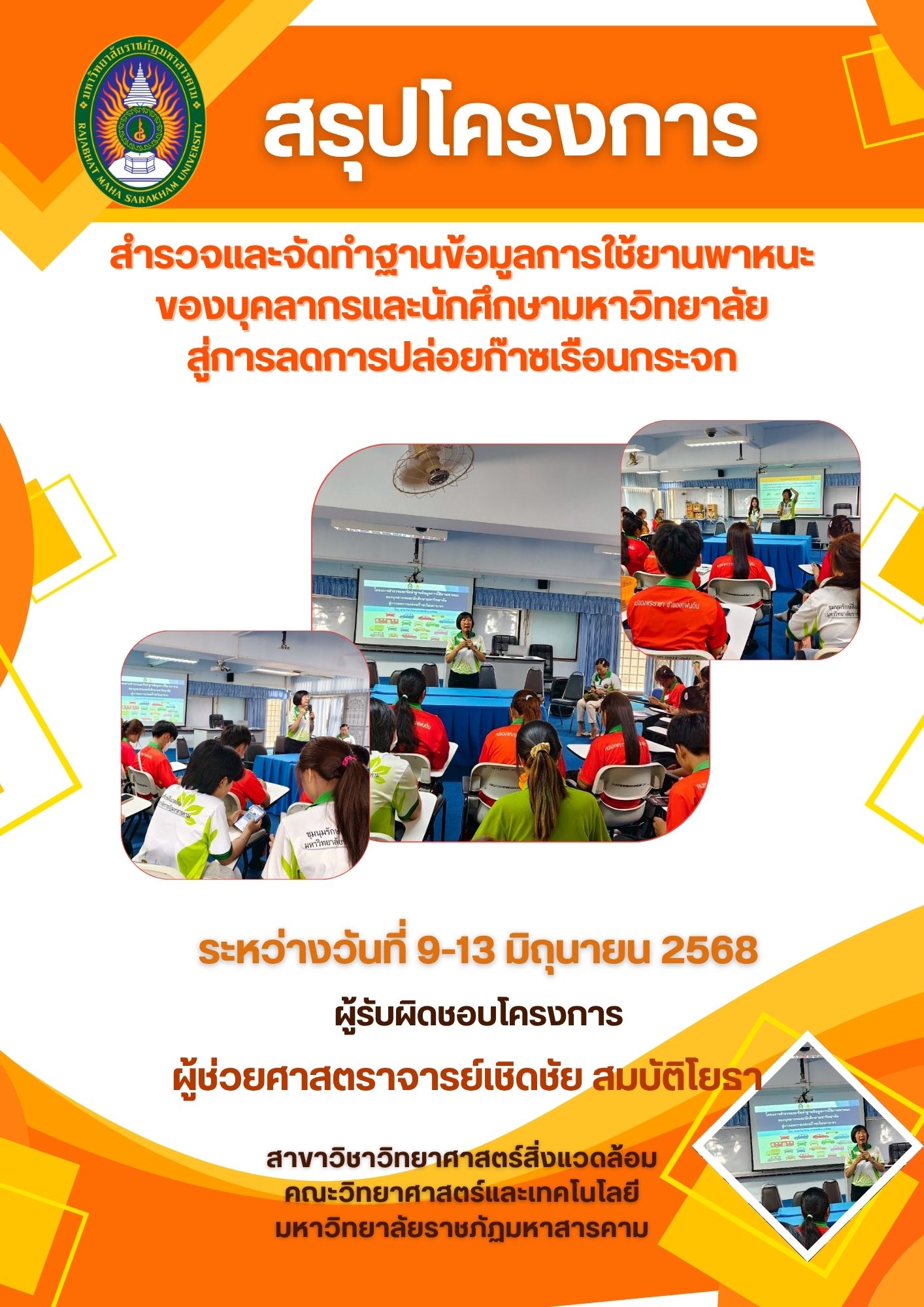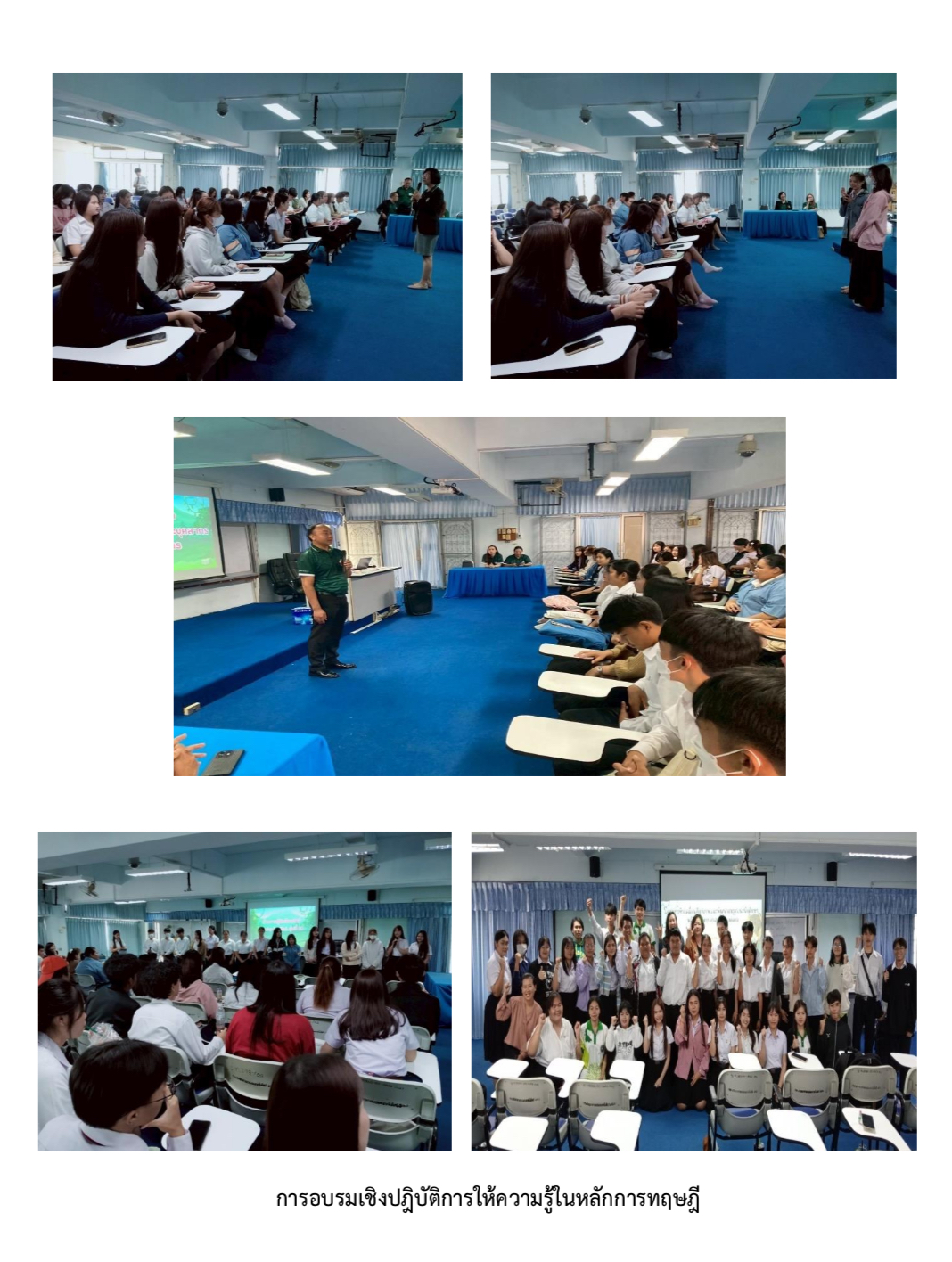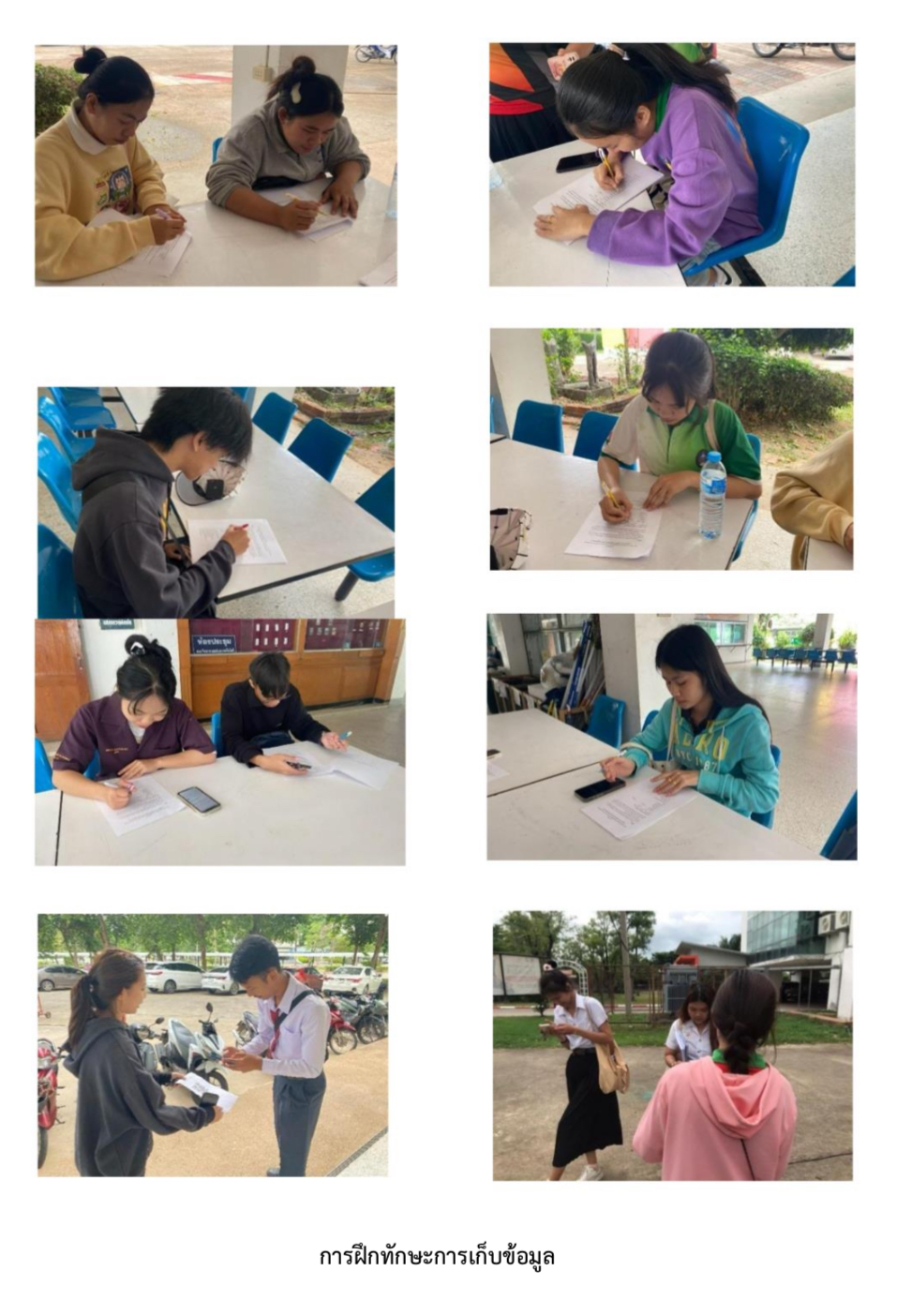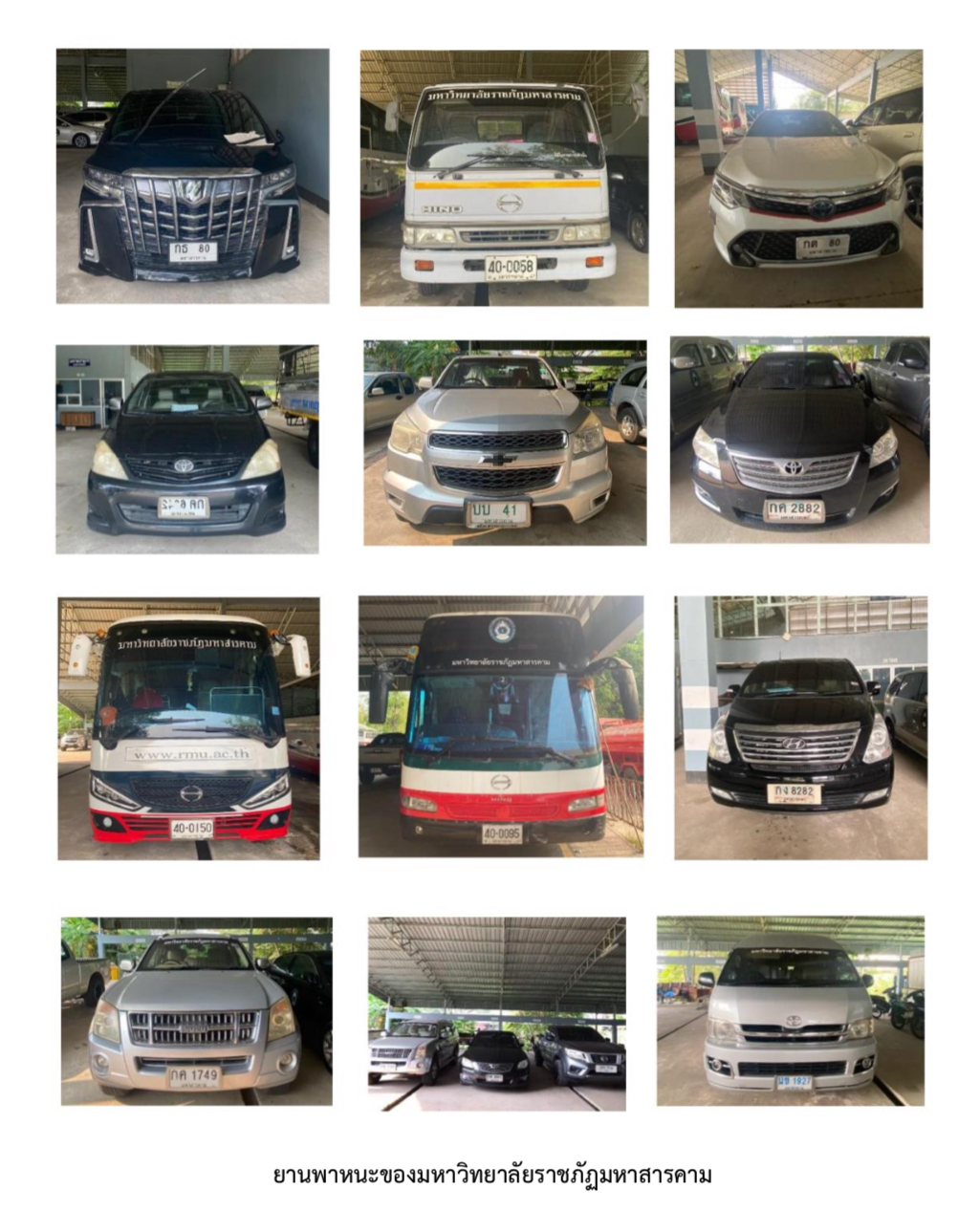
Survey and Database Development on Vehicle Usage by University Personnel and Students and its Greenhouse Gas Emission
ผู้รับผิดชอบ ให้ข้อมูล : ผศ.ดร.เชิดชัย สมบัติโยธา
SDG ที่เกี่ยวข้อง
เป้าหมายย่อยความสอดคล้องกับยุทธศาสตร์มหาวิทยาลัย : พัฒนาระบบบริหารจัดการบนพื้นฐานธรรมาภิบาลและจริยธรรม
แหล่งงบประมาณ : งบประมาณแผ่นดิน
กลุ่มเป้าหมาย : นักศึกษา
Project Implementation Area : มหาวิทยาลัยราชภัฏมหาสารคาม ตำบล Talat อำเภอ Mueang Maha Sarakham จังหวัด Maha Sarakham 44000
Project Duration: June 9, 2025 – June 13, 2025
Objectives :
1. To enable students to develop skills in surveying data on usage of Rajabhat Maha Sarakham Universityv vehicle, including personal vehicles of university personnel and students, within the university.
2. To develop students’ skills in analyzing and creating a database on vehicle use within Rajabhat Maha Sarakham University, serving as a foundation for policy formulation to reduce greenhouse gas (GHG) emissions at the university level.
Activities :
Activity 1: Student training in data collection on Rajabhat Maha Sarakham vehicle use, including personal vehicles of staff and students, within the university.
Activity 2: Student training in analyzing data on fuel consumption and estimating greenhouse gas emissions from vehicle use within the university community. Activity 3: Student training in developing a comprehensive database of fuel consumption for Rajabhat Maha Sarakham Universit, personnel, and students' vehicles.
Number of project participants: 54 people
Project Budget: 30,000 Baht
Results :
Rajabhat Maha Sarakham University has established a database on greenhouse gas emissions generated from both university-owned and personal vehicles of staff and students. This database will serve as a key decision-making tool for developing and implementing effective measures to reduce greenhouse gas emissions within the university.
Results society :
- Economic Dimension: The analysis of vehicle use and fuel consumption can help the university and its personnel reduce travel-related expenses by identifying more efficient travel options. In the long term, promoting alternative energy transportation—such as bicycles or electric vehicles—can reduce operational costs and contribute to sustainable energy use.
- Social Dimension: The survey and analysis activities have increased awareness among personnel and students regarding the environmental and health impacts of vehicle use. Reduced reliance on personal vehicles can help decrease air pollution, thereby improving community well-being and public health.
- Educational Dimension:The data collected can be utilized for curriculum development in environmental management and energy efficiency courses. It can also be used as a foundation for training programs on sustainable mobility and greenhouse gas reduction for staff and students.
- Environmental Dimension: The analysis of vehicle use supports university planning for emission reduction and promotes more efficient use of natural resources while minimizing fossil fuel dependency. Collectively, these activities contribute positively to environmental sustainability at both the university and community levels.
Participation :
Students and university personnel actively participated by responding to questionnaires to provide data on personal vehicle use and fuel consumption, contributing to the creation of the university’s greenhouse gas emission database.
Project continuity :
-
Problems obstacles :
-
Improvement :
-
Suggestions :
1. Database Improvement and Expansion
- Broaden data coverage to include travel distance per day, fuel type, and use of electric vehicles or bicycles.
- Integrate the database with the university’s information systems (Data Center / Dashboard).
2. GHG Emission Reporting
- Calculate the carbon footprint from staff and student travel.
- Establish a baseline for future monitoring and comparison.
3. Design and Pilot GHG Mitigation Measures
- Implement pilot projects such as carpooling, shuttle buses, public bicycle systems, and EV parking spaces.
- Launch awareness campaigns such as “Car Free Day” or “Shared Travel Day” within the university.
4. Community Engagement
- Organize workshops and training sessions on sustainable mobility.
- Promote behavioral change through a reward system (e.g., Green Points) for public transport or carpool users.
5. Monitoring and Evaluation
- Compare pre- and post- implementation greenhouse gas emission data.
- Prepare summary reports for university administrators and public dissemination.
6. Policy Integration and Scaling Up
- Integrate findings into the “Low Carbon University” or “Green University” strategic plans.
- Link university data with the Thailand Greenhouse Gas Management Organization (TGO) for national-level reporting.


